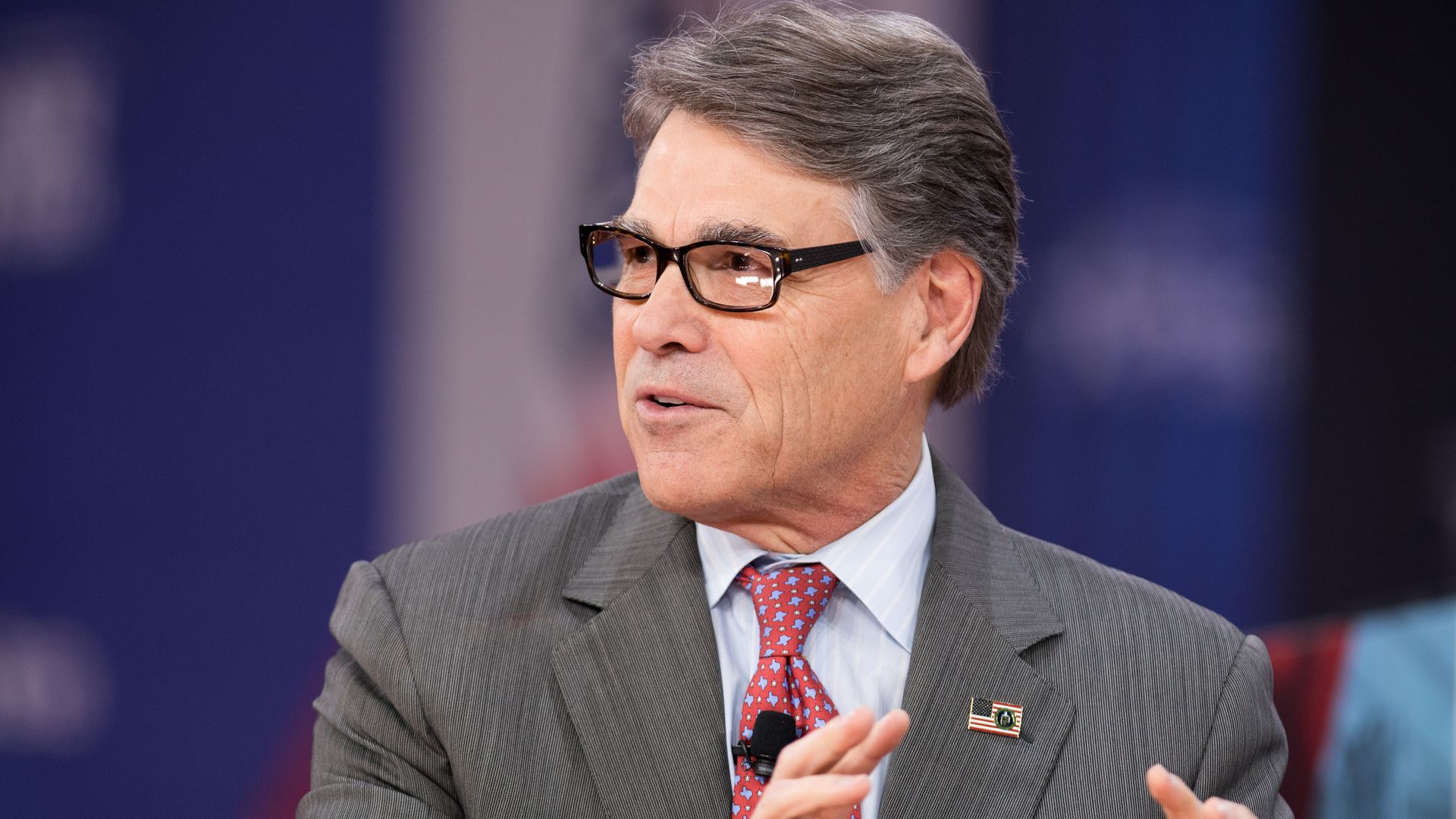Updated Mar 21, 2018 - Energy & Climate
Expert VoicesTrump’s Energy Secretary to Congress: Please ignore my boss
Add Axios as your preferred source to
see more of our stories on Google.

Secretary Perry at the Conservative Political Action Conference. Photo: Michael Brochstein / SOPA Images / LightRocket via Getty Images
